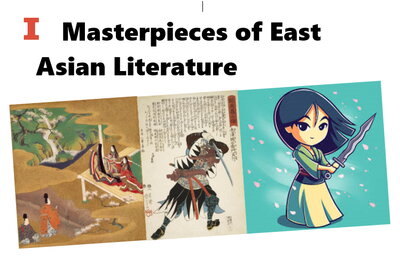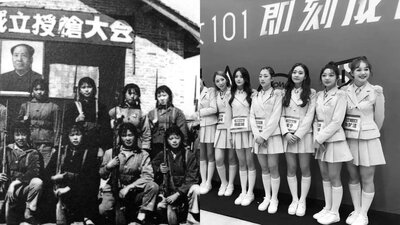![[F22] Language and Society](https://ealc.illinois.edu/sites/default/files/styles/medium_400/public/2022-03/%5BF22%5D%20Language%20and%20Society.jpg?itok=T4F4AHPB)
A selection of our Fall 2022 courses is introduced below. For a complete list of courses that are offered, please visit Course Explorer.
EALC 199 BTA: Language and Society of Two Koreas (MW 2:00 - 3:15 pm)
![[F22] Language and Society](https://ealc.illinois.edu/sites/default/files/styles/medium_400/public/2022-03/%5BF22%5D%20Language%20and%20Society.jpg?itok=T4F4AHPB)
This course will be offered online via BTAA CourseShare utilizing Zoom.
The course is designed to offer an introduction and contrastive analysis of the language and society of the two Koreas; the Republic of Korea (better known as South Korea) and the Democratic People’s Republic of Korea (better known as North Korea) with a heavier emphasis on North Korea. This course will introduce the growing divide of the past 70 years between North and South Korea in the areas of language, society, and culture. The complexity of the East Asian region is partly due to the issues involving the two Koreas; however, knowledge regarding North Korea remains very limited compared to its neighbors. Mass media portrays the controversial political and human rights issues of North Korea but generally lacks in coverage of linguistic issues and everyday life there. The course content will be based on various scholarly articles and book chapters, current web-based resources, news reports, North Korean propaganda, and documentaries. While this course will include linguistic elements of interest to intermediate and advanced students of the Korean language, all course content will be accessible to students regardless of Korean language proficiency. This course has no pre-requisites and does not expect students to have a background in political science, Korean history, or sociology, nor a background on North Korea. It does however expect that students have some interest in these areas.
EALC 275 Masterpieces of East Asian Literature (MW 12:00-12:50)

A wide-ranging, multi-media introduction to the literatures of China, Korea, and Japan. We read selections from some of the greatest novels, plays, and poems from each tradition in order to gain insight into the cultures that produced them while developing skills in literary and cultural analysis. At various points in the course, we also explore how these influential texts have been repackaged and reprocessed for modern audiences in media such as film, anime, and manga.
Time and Location: (Lecture) MW 12-12:50, 161 Noyes Laboratory; (Sections) F, Room and time TBA
*No knowledge of East Asian languages required. Fulfills the Gen Ed Non-Western Cultures and Literature and the Arts requirements.
EALC 367 BTA: History of Korea (TR 11:00 - 12:15 pm)
![[F22] Korean Food Cultures](https://ealc.illinois.edu/sites/default/files/styles/medium_400/public/2022-03/%5BF22%5D%20Korean%20Food%20Cultures.jpg?itok=NiN9vLZp)
This course will be offered online via BTAA CourseShare utilizing Zoom.
This course is an exploration of Korean foods and food ways of Korea that uses food as a lens for understanding modern cultures and history of the Koreas. We will delve into questions such as: How have Korean foods changed in concert with key processes of global history from the 19th century to today? What meanings do people attach to foods, and what do these meanings reveal? How can food be a source of social unity—or of social division? To answer these and other questions, we will explore a range of topics as they connect to the eating, making, and the representation of foods, including: the effects of capitalism and imperialism; decolonization and nation building; the construction of national dishes and cuisines; diaspora and multiculturalism; globalization and media.
EALC 398: Gender in Post-WWII East Asia (MW 11:30 am - 12:50 pm)

This course discusses contemporary East Asian cultures and societies from the perspective of gender. It focuses on women’s and men’s different experiences, role status ideas, and contributions during the post-WWII period. Going beyond dichotomies of East and West, traditional and modern, this course will examine gender issues from a theoretically informed and comparative perspective. Our goal is to progressively map the key notions of contemporary gender studies while looking back at the sociopolitical transformations faced by China, Japan, and Korea in the past decades. In this course, we examine both the intergender differences between men and women in East Asia and the intragender variations among women and men. We will highlight the perspectives of men and women from a variety of social classes, cultures, countries, communities, and racial-ethnic backgrounds, as well as people of diverse ages, sexual orientations, and non-binary gender identities.